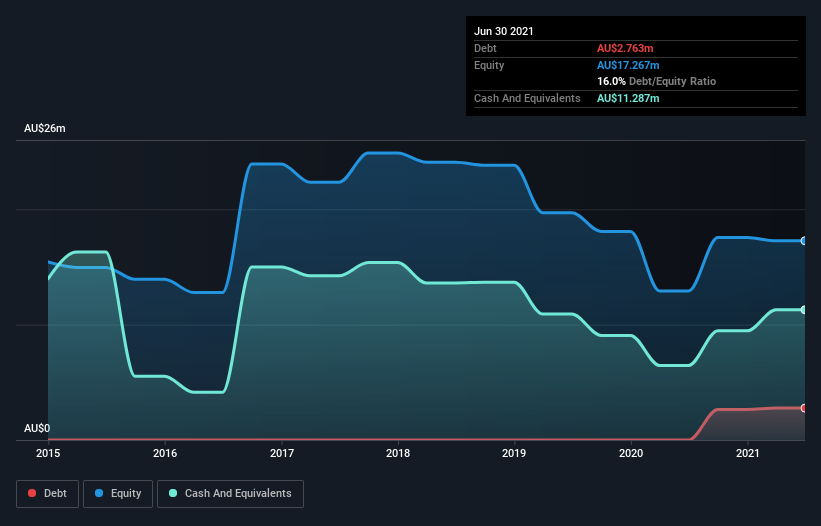These 4 Measures Indicate That Smart Parking (ASX:SPZ) Is Using Debt Reasonably Well
Legendary fund manager Li Lu (who Charlie Munger backed) once said, 'The biggest investment risk is not the volatility of prices, but whether you will suffer a permanent loss of capital.' So it might be obvious that you need to consider debt, when you think about how risky any given stock is, because too much debt can sink a company. We note that Smart Parking Limited (ASX:SPZ) does have debt on its balance sheet. But is this debt a concern to shareholders?
When Is Debt A Problem?
Debt and other liabilities become risky for a business when it cannot easily fulfill those obligations, either with free cash flow or by raising capital at an attractive price. Ultimately, if the company can't fulfill its legal obligations to repay debt, shareholders could walk away with nothing. However, a more frequent (but still costly) occurrence is where a company must issue shares at bargain-basement prices, permanently diluting shareholders, just to shore up its balance sheet. Of course, the upside of debt is that it often represents cheap capital, especially when it replaces dilution in a company with the ability to reinvest at high rates of return. The first step when considering a company's debt levels is to consider its cash and debt together.
View our latest analysis for Smart Parking
How Much Debt Does Smart Parking Carry?
The image below, which you can click on for greater detail, shows that at June 2021 Smart Parking had debt of AU$2.76m, up from none in one year. But it also has AU$11.3m in cash to offset that, meaning it has AU$8.52m net cash.
How Healthy Is Smart Parking's Balance Sheet?
We can see from the most recent balance sheet that Smart Parking had liabilities of AU$10.5m falling due within a year, and liabilities of AU$12.1m due beyond that. Offsetting these obligations, it had cash of AU$11.3m as well as receivables valued at AU$7.15m due within 12 months. So its liabilities total AU$4.11m more than the combination of its cash and short-term receivables.
Given Smart Parking has a market capitalization of AU$78.3m, it's hard to believe these liabilities pose much threat. But there are sufficient liabilities that we would certainly recommend shareholders continue to monitor the balance sheet, going forward. While it does have liabilities worth noting, Smart Parking also has more cash than debt, so we're pretty confident it can manage its debt safely.
It was also good to see that despite losing money on the EBIT line last year, Smart Parking turned things around in the last 12 months, delivering and EBIT of AU$5.0m. There's no doubt that we learn most about debt from the balance sheet. But it is Smart Parking's earnings that will influence how the balance sheet holds up in the future. So when considering debt, it's definitely worth looking at the earnings trend. Click here for an interactive snapshot.
Finally, a business needs free cash flow to pay off debt; accounting profits just don't cut it. While Smart Parking has net cash on its balance sheet, it's still worth taking a look at its ability to convert earnings before interest and tax (EBIT) to free cash flow, to help us understand how quickly it is building (or eroding) that cash balance. Over the last year, Smart Parking actually produced more free cash flow than EBIT. That sort of strong cash generation warms our hearts like a puppy in a bumblebee suit.
Summing up
While it is always sensible to look at a company's total liabilities, it is very reassuring that Smart Parking has AU$8.52m in net cash. The cherry on top was that in converted 101% of that EBIT to free cash flow, bringing in AU$5.0m. So is Smart Parking's debt a risk? It doesn't seem so to us. The balance sheet is clearly the area to focus on when you are analysing debt. However, not all investment risk resides within the balance sheet - far from it. For instance, we've identified 2 warning signs for Smart Parking that you should be aware of.
When all is said and done, sometimes its easier to focus on companies that don't even need debt. Readers can access a list of growth stocks with zero net debt 100% free, right now.
This article by Simply Wall St is general in nature. We provide commentary based on historical data and analyst forecasts only using an unbiased methodology and our articles are not intended to be financial advice. It does not constitute a recommendation to buy or sell any stock, and does not take account of your objectives, or your financial situation. We aim to bring you long-term focused analysis driven by fundamental data. Note that our analysis may not factor in the latest price-sensitive company announcements or qualitative material. Simply Wall St has no position in any stocks mentioned.
Have feedback on this article? Concerned about the content? Get in touch with us directly. Alternatively, email editorial-team (at) simplywallst.com.

